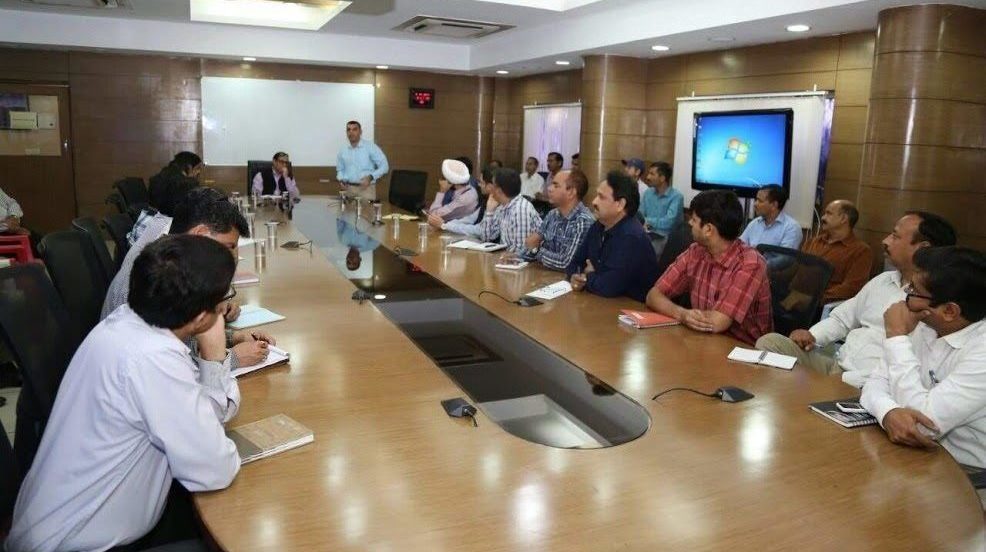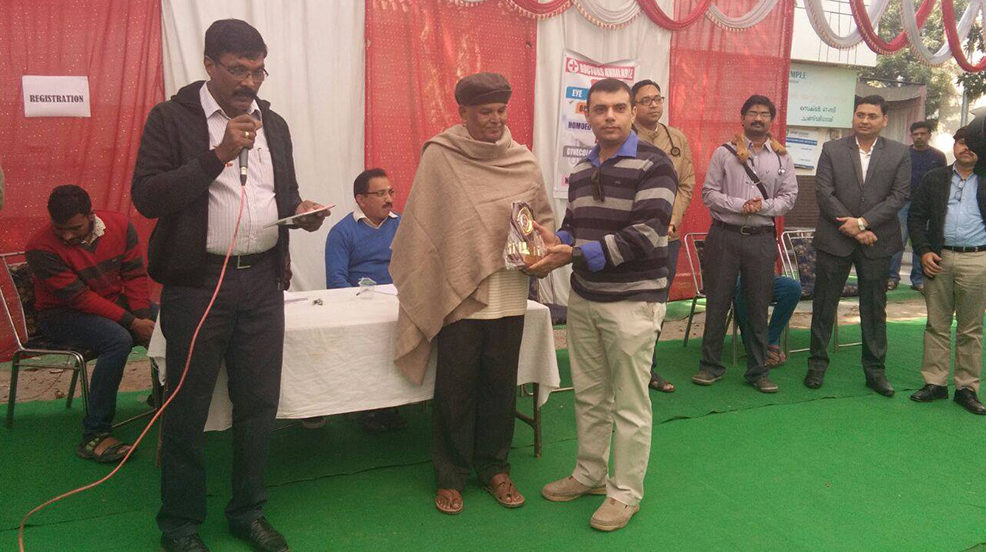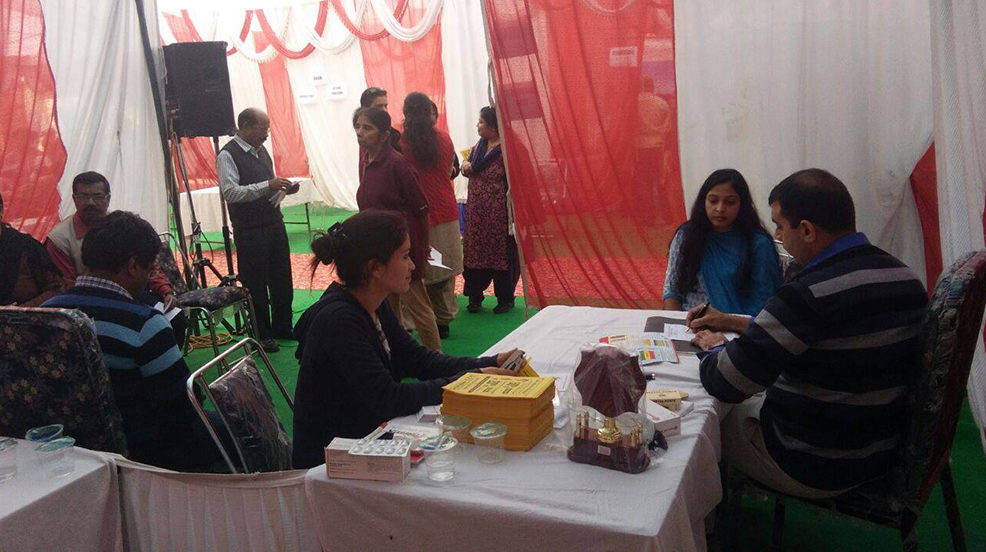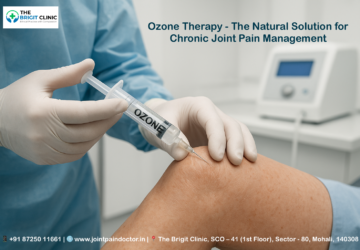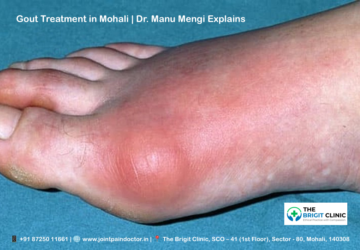Physiotherapy plays a crucial role in modern healthcare, supporting the well-being of more than 1 billion people worldwide who live with some form of disability. Beyond just healing injuries, physiotherapy offers numerous benefits, including pain relief, enhanced mobility, and injury prevention.
As the population ages and chronic diseases become more prevalent, the importance of physiotherapy continues to grow significantly. Whether you’re recovering from surgery, managing back pain, or dealing with conditions like Parkinson’s disease or stroke, physiotherapy aims to relieve your pain, improve your movement, and strengthen weakened muscles. Furthermore, physiotherapists have become key members of collaborative healthcare teams due to their broad scope of practice.
Throughout this guide, you’ll discover how physiotherapy addresses various health conditions, from orthopaedic issues to neurological disorders. Additionally, you’ll learn about its evolving role in preventive healthcare, its benefits for different age groups, and how it compares to regular exercise routines. Particularly important is understanding how physiotherapy can improve your quality of life, whether you’re an athlete recovering from injury, an office worker with posture problems, or a senior seeking to maintain independence.
Ready to experience the benefits of expert physiotherapy? Schedule your consultation at the leading Physiotherapy Clinic in Mohali today! Call us at 0172 - 3137922.
The Core Functions of Physiotherapy in Healthcare
At the heart of modern healthcare, physiotherapy serves four core functions that make it an essential component of comprehensive treatment plans. Unlike conventional medical approaches that focus primarily on symptoms, physiotherapy addresses the root causes of physical dysfunction through personalised interventions.
Pain relief and physical recovery
Physiotherapists employ a variety of techniques to manage pain effectively without relying solely on medication. Manual therapy methods such as massage and manipulation help reduce stiffness, relax muscles, and improve range of movement. Beyond just temporary relief, these approaches stimulate the release of endorphins—natural chemicals that act as pain relievers. Cold and heat therapies work by temporarily altering pain signals travelling to and from your brain, while techniques like ultrasound therapy and electrotherapy promote cellular repair and tissue regeneration.
Improving mobility and flexibility
Good mobility and flexibility allow you to perform daily activities with ease—from getting out of bed to climbing stairs. Physiotherapists assess your movement limitations through specialised tests that measure range of motion and muscle strength. Based on these assessments, they create personalised treatment plans that may include stretching exercises to lengthen muscles and tendons, and strengthening exercises to improve joint support. These interventions not only enhance your movement potential but also improve your overall quality of life by enabling participation in leisure activities and sports.
Preventing injuries and relapses
Physiotherapy goes beyond treating existing conditions—it plays a crucial role in preventing future problems. Through comprehensive assessments that analyse movement patterns, strength, and biomechanics, physiotherapists identify potential weaknesses or imbalances that could lead to injury. They then design tailored exercise programs that address these specific areas, focusing on proper form and technique. Strengthening exercises improve muscle resilience, while functional training simulates real-life movements to promote stability and proper muscle memory.
Supporting post-surgery rehabilitation
Post-surgical rehabilitation should begin immediately in the hospital and continue after discharge for optimal recovery. Physiotherapy after surgery helps you manage pain effectively, strengthen weakened muscles, and restore mobility in affected joints. A tailored physiotherapy program can also improve circulation, prevent complications like blood clots, and ultimately accelerate your recovery time. Moreover, physiotherapy addresses both the physical and psychological effects of surgery, helping reduce anxiety and build confidence as you regain independence and return to daily activities.
Don't let pain or limited mobility hold you back. Our clinic is recognised as the Best Physio Clinic in Mohali for post-surgical and injury rehabilitation. Find our Physio Clinic Near Me in Mohali and start your recovery journey!
8 Essential Benefits of Physiotherapy in 2025
In 2025, physiotherapy continues to evolve as an evidence-based approach to healthcare, offering numerous benefits beyond traditional medical treatments. Recent research confirms its effectiveness across various health conditions, making it an essential component of modern treatment plans.
1. Pain management through manual and electrotherapy
Physiotherapy offers effective pain relief through specialised techniques. Manual therapy methods like joint mobilisation and soft tissue massage reduce pain by improving circulation and calming inflamed tissues. Electrical stimulation treatments, such as TENS, block pain signals to the brain while promoting the release of natural painkillers. These approaches provide an alternative to medication, with studies showing significant pain reduction from an average of 5.09 to 2.95 on pain scales.
2. Enhanced mobility for neurological disorders
For those with neurological conditions like stroke or Parkinson’s disease, physiotherapy provides crucial mobility improvements. Targeted exercises help retrain the brain and body to work together, improving coordination through balance exercises and specific muscle strengthening. Techniques such as stretching and joint compression enhance awareness of position and movement, essential for patients with neurological impairments.
3. Injury prevention for athletes and active individuals
Physiotherapy plays a vital role in preventing sports injuries through:
- Biomechanical analysis to identify potential weaknesses
- Targeted strength training for vulnerable joints
- Flexibility work to maintain mobility
- Movement correction for proper technique
Research shows these approaches can reduce lower limb injury risk by 37% and overuse injury risk by 47%.
4. Faster recovery after surgeries and joint replacements
Post-surgical physiotherapy accelerates healing and improves outcomes for the 310 million major surgeries performed worldwide annually. Benefits include faster tissue repair, reduced inflammation, and improved circulation—all contributing to quicker return to normal activities. Consequently, patients experience less pain and regain independence sooner.
5. Cardiopulmonary support for heart and lung conditions
Physiotherapists treat various cardiopulmonary disorders, including COPD, asthma, and cardiovascular disease. Specialised techniques like breathing exercises and pulmonary rehabilitation enhance exercise tolerance and improve lung function. These interventions help patients breathe more easily and perform daily activities with less difficulty.
6. Mental health improvements through physical activity
Physical activity through physiotherapy releases serotonin and endorphins, chemicals known to regulate mood. Studies confirm that both aerobic and resistance exercises show promising results in treating depression and anxiety. Regular participation in physiotherapy programs reduces stress and anxiety while improving sleep quality and concentration.
7. Better posture and ergonomics for desk job workers
Desk job professionals often develop neck strain, lower back pain, and weakened core muscles from prolonged sitting. Physiotherapists evaluate posture and provide corrective exercises to improve spinal alignment and core strength. Proper ergonomic workstation setup combined with stretching exercises increases circulation and reduces stiffness.
8. Improved quality of life for elderly patients
For older adults, physiotherapy maintains independence and prevents complications associated with ageing. It effectively manages chronic conditions with targeted exercises that improve strength and balance. Research indicates a strong correlation between physiotherapy session duration and both pain reduction (r = 0.38) and mobility improvement (r = 0.43). This leads to enhanced autonomy in daily activities and fewer fall-related injuries.
From pain relief to preventive care, experience why we are considered the Best Physiotherapist Clinic in Mohali. Book an appointment with a Physiotherapist in Mohali from our expert team and take the first step towards a pain-free life.
Where Physiotherapy Makes the Biggest Impact
Physiotherapy excels in specific clinical areas, addressing conditions that affect people across all stages of life. Understanding these key areas helps highlight why physiotherapy has become fundamental in comprehensive healthcare systems worldwide.
Orthopaedic conditions like arthritis and knee pain
Orthopaedic physiotherapy treats ailments affecting the musculoskeletal system—including bones, muscles, joints, and connective tissues. This speciality effectively manages arthritis, tendinitis, bone cancer, sprains, and joint dislocations through targeted interventions. Patients experience improved mobility, reduced pain, enhanced muscular strength, and decreased swelling after treatment. Notably, orthopaedic rehabilitation plays a crucial role following joint replacements, addressing tissue-related issues like carpal tunnel syndrome and tennis elbow problems.
Neurological rehabilitation after stroke or Parkinson’s
Neurological physiotherapy focuses on brain, spinal cord, and nerve disorders that affect physical function. For stroke patients, who represent 85% of physiotherapy needs in some units, treatment enhances movement through neuroplasticity—helping the brain create new pathways. Although hospital patients often receive only 32 minutes of therapy on just over 50% of their days in hospital, private neurological physiotherapy has shown significant functional improvements beyond the first six months. For Parkinson’s patients—representing the second most common neurological condition in the UK—physiotherapy improves posture, gait, balance, and upper limb function.
Women’s health and pelvic floor therapy
Women’s health physiotherapy addresses conditions throughout life stages, from young athletes to menopausal women. Pelvic floor therapy treats urinary incontinence—affecting 1 in 3 women—and faecal incontinence affecting 1 in 8 women. Approximately 1 in 5 women experience pain during sex, while at least 50% of women over 50 have some degree of pelvic organ prolapse. Treatment specialities include pregnancy-related conditions, postpartum care, and pelvic pain management.
Pediatric care for developmental delays
Pediatric physiotherapy treats developmental delays—conditions where children fail to reach age-appropriate milestones in physical, cognitive, or social development. Early intervention is essential, as young children’s brains adapt more easily to therapy. Treatment improves motor milestones like rolling, crawling, and walking through specialised techniques, including neurodevelopmental approaches, sensory integration, and play therapy. Physiotherapists create stimulating environments with fun, effective exercises that maximise children’s potential while promoting independence in daily activities.
Whether it's orthopaedic, neurological, or women's health, our specialised Physiotherapy in Mohali is tailored to your needs. Looking for a trusted Physiotherapist Mohali residents recommend? Visit The Brigit Clinic for comprehensive care.
How Physiotherapy is Evolving in Modern Healthcare
The landscape of physiotherapy practice has undergone remarkable changes in recent years, expanding beyond traditional rehabilitation services into diverse healthcare domains.
Integration into hospital and outpatient care
Physiotherapy now extends beyond treatment rooms into various healthcare settings. Telehealth has revolutionised service delivery, allowing therapists to reach patients in remote areas and maintain care continuity during crises. This digital transformation enhances patient engagement through mobile apps and virtual platforms. Advanced treatments and evidence-based practices have improved patient outcomes, contributing to faster recovery and enhanced quality of life. Innovations in technology have made physiotherapy more cost-effective and accessible to broader populations.
Use in preventive healthcare and lifestyle disease management
Preventive physiotherapy has emerged as a crucial approach to managing long-term health. Rather than simply treating existing conditions, physiotherapists now identify potential physical issues before they develop. Indeed, physiotherapists are uniquely positioned to tackle the root causes of non-communicable diseases like obesity, cardiovascular disease, and diabetes. Early interventions through screenings and assessments help prevent conditions from worsening, especially since approximately 31% of the global population doesn’t get enough exercise.
Comparison with regular exercise routines
Despite common misconceptions, physiotherapy exercises and conventional workouts share fundamental principles. Both adhere to progression, specificity, and established parameters of frequency, intensity, time, and type. Essentially, the primary difference lies in purpose—physiotherapy addresses dysfunctions and alleviates pain through targeted functional movement patterns. Regular exercise primarily focuses on fitness maintenance rather than treating underlying conditions.
Role in multidisciplinary healthcare teams
Physiotherapists have become integral members of multidisciplinary healthcare teams. They collaborate with physicians, nurses, dieticians, and other professionals in treating complex conditions. Specifically, they contribute unique skills in movement, rehabilitation, and exercise therapy that complement other medical specialities. This collaborative approach creates personalised care plans addressing both physical and emotional patient needs, improving recovery times and functional independence. Physiotherapists perform thorough assessments, design rehabilitation programs, offer non-invasive pain relief strategies, and educate patients on injury prevention.
Experience modern, evidence-based Physiotherapy in Mohali at The Brigit Clinic. Our multidisciplinary approach ensures you receive the best care. Find a Physio Clinic Near Me in Mohali and read our reviews on Google!
Conclusion
Physiotherapy has clearly established itself as an indispensable component of modern healthcare systems worldwide. Throughout this guide, you’ve seen how it extends far beyond simple injury treatment to offer comprehensive care for diverse conditions. The evidence overwhelmingly supports its effectiveness for pain management, mobility enhancement, and injury prevention across all age groups.
Therefore, whether you struggle with chronic back pain, recover from surgery, or manage a neurological condition, physiotherapy provides targeted solutions that medication alone cannot offer. Additionally, its preventive applications help you avoid future health complications while maintaining optimal physical function.
What makes physiotherapy particularly valuable is its adaptability to individual needs. For instance, elderly patients benefit from balance training that prevents falls, while office workers gain relief from posture correction exercises. Athletes, meanwhile, receive specialised protocols that both heal injuries and prevent their recurrence.
The field continues to evolve with technological advancements, making treatments more accessible through telehealth options and digital monitoring tools. Consequently, you now have unprecedented access to expert care regardless of your location.
Above all, physiotherapy empowers you to take an active role in your healthcare journey. Rather than passive recipients of treatment, patients become partners in the rehabilitation process, learning techniques they can apply independently. This partnership between practitioner and patient ultimately leads to better outcomes and lasting improvements in quality of life.
Physiotherapy thus represents not just a treatment option but a fundamental shift toward more holistic, patient-centred healthcare. As research continues to validate its effectiveness across medical specialities, its role will undoubtedly expand further, benefiting countless more individuals seeking pain relief, improved function, and enhanced well-being.
Take control of your health with the Best Physiotherapist in Mohali. Don't wait for the pain to worsen. Call 0172 - 3137922 to visit our Physiotherapy Clinic in Mohali and begin your path to recovery today!
Key Takeaways
Physiotherapy has evolved into a cornerstone of modern healthcare, offering evidence-based solutions that go far beyond traditional injury treatment to encompass prevention, rehabilitation, and quality of life enhancement.
• Physiotherapy provides effective pain relief through manual therapy and electrotherapy, reducing pain scores significantly while offering medication-free alternatives for chronic conditions.
• Early intervention and preventive physiotherapy can reduce sports injury risk by 37% and overuse injuries by 47%, making it essential for athletes and active individuals.
• Neurological rehabilitation through physiotherapy helps stroke and Parkinson’s patients regain mobility and independence by retraining brain-body connections through targeted exercises.
• Post-surgical physiotherapy accelerates recovery, improves circulation, and helps patients regain independence faster while reducing complications from the 310 million major surgeries performed annually worldwide.
• Modern physiotherapy integrates seamlessly into multidisciplinary healthcare teams and utilises telehealth technology, making specialised care more accessible regardless of location.
The field’s expansion into preventive healthcare and lifestyle disease management positions physiotherapy as a proactive solution for the growing burden of non-communicable diseases, while its patient-centred approach empowers individuals to take active roles in their recovery and long-term health maintenance.
FAQs
Q1. What are the key benefits of physiotherapy in modern healthcare?
A1. Physiotherapy offers numerous benefits, including effective pain management, improved mobility, injury prevention, and faster recovery after surgery. It also supports cardiopulmonary health, enhances mental well-being through physical activity, and improves quality of life for patients of all ages.
Q2. How does physiotherapy differ from regular exercise routines?
A2. While both physiotherapy and regular exercise share fundamental principles, physiotherapy is specifically designed to address dysfunctions and alleviate pain through targeted functional movement patterns. It focuses on treating underlying conditions, whereas regular exercise primarily aims at maintaining general fitness.
Q3. Can physiotherapy help with neurological conditions?
A3. Yes, physiotherapy plays a crucial role in neurological rehabilitation. It helps patients with conditions like stroke or Parkinson’s disease improve mobility, coordination, and balance through targeted exercises that retrain the brain and body to work together more effectively.
Q4. How is physiotherapy evolving with modern technology?
A4. Physiotherapy is increasingly integrating telehealth services, allowing therapists to reach patients in remote areas. Digital platforms and mobile apps are enhancing patient engagement, while advanced treatments and evidence-based practices are improving outcomes and making physiotherapy more accessible and cost-effective.
Q5. Is physiotherapy only for injury recovery?
A5. No, physiotherapy extends beyond injury recovery. It’s also used in preventive healthcare, lifestyle disease management, and addressing chronic conditions. Physiotherapists now play a key role in identifying potential physical issues before they develop and managing long-term health, particularly for non-communicable diseases like obesity and cardiovascular conditions.
About Dr. Aayushi – Mohali’s Top Physiotherapist
When searching for a Physiotherapist in Mohali who combines expertise with compassionate care, look no further than Dr. Aayushi. As Mohali’s Top Physiotherapist, she leads The Brigit Clinic with a commitment to providing personalised, evidence-based treatment plans for every patient. Specialising in orthopaedic rehabilitation, sports injuries, and chronic pain management, Dr. Aayushi and her team are dedicated to helping you achieve your functional goals and improve your quality of life. Trust your recovery to the best; choose the Best Physiotherapist Clinic in Mohali for exceptional care and lasting results.
#PhysiotherapyInMohali #BestPhysiotherapistInMohali #MohaliPhysio #PainRelief #PhysicalTherapy #Rehabilitation #SportsInjury #BackPainRelief #PhysioClinicNearMe #HealthAndWellness #MohaliHealthcare #TheBrigitClinic #DrAayushi

